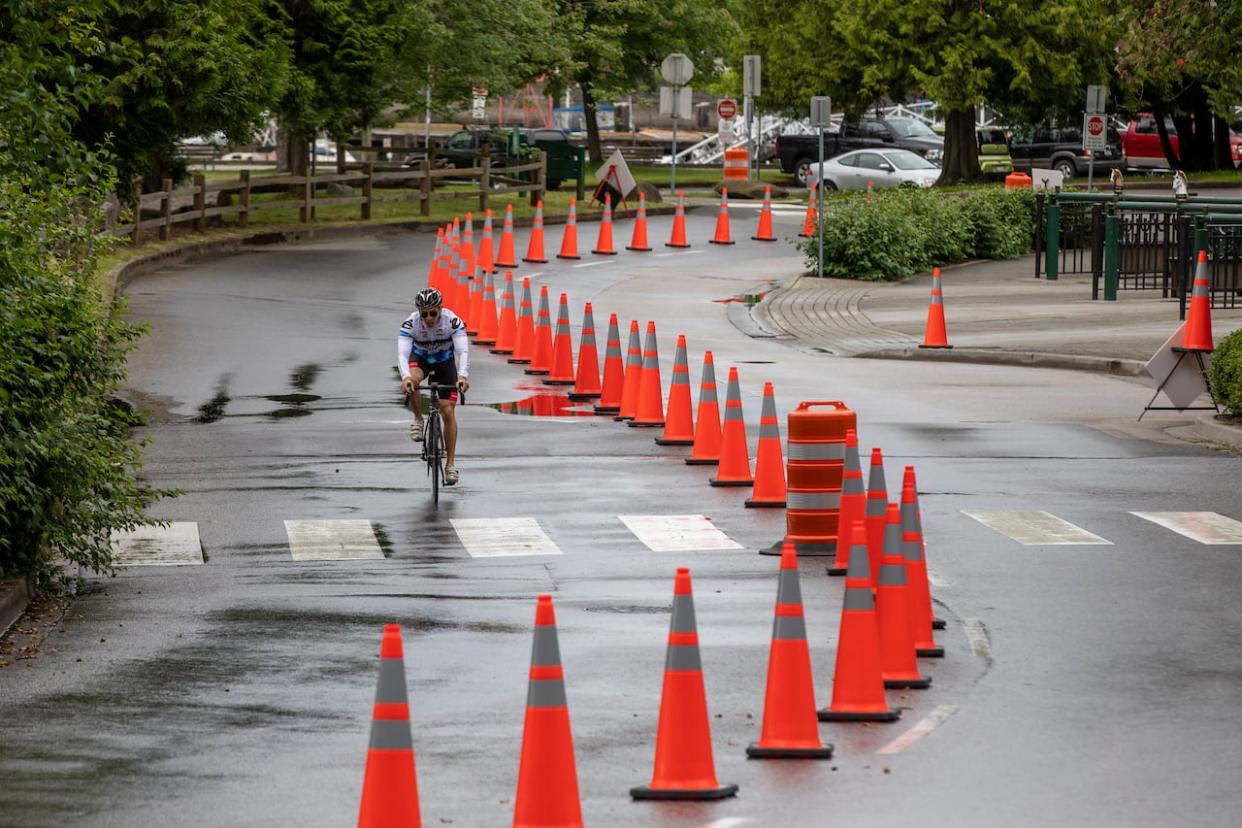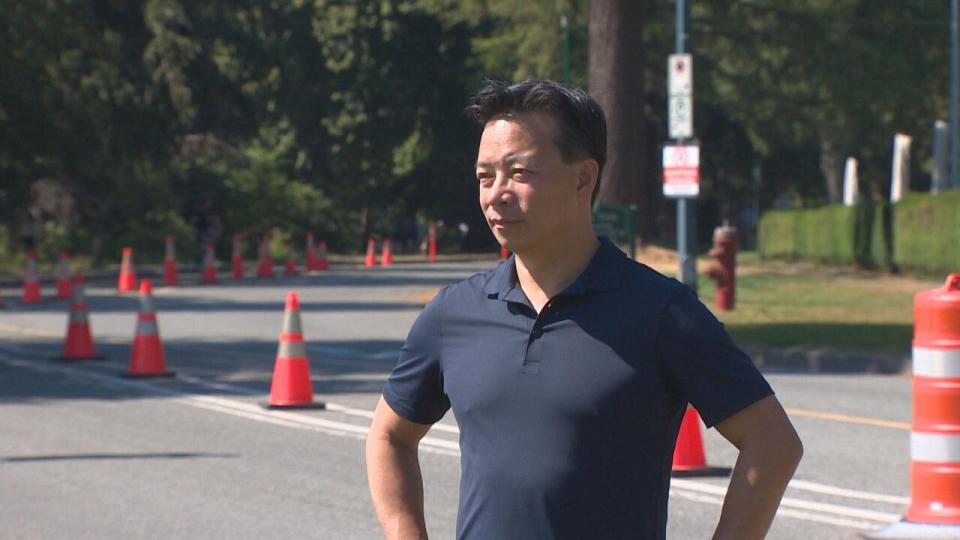ABC Vancouver's indefinite delay on Stanley Park bike lane 'solution' shows the challenges of governing

It wasn't an apology, per se.
But on the always-polarizing issue of bike lanes in Stanley Park, Coun. Mike Klassen made a clear acknowledgement that ABC Vancouver's rhetoric hadn't become reality.
"You should never overpromise on things, and in that case, I clearly overpromised based on the information I had at the time," said Klassen, a day after the park board accepted a report from staff that rules out any permanent bike lane in the park.
"I understand the frustration and truthfully, I share the frustration."
In interviews and social media posts — during the 2022 election campaign and after it — Klassen, Vancouver Mayor Ken Sim, and multiple other ABC councillors and park board commissioners repeatedly said the removal of the temporary lane in the park would make way for a "permanent solution" that involved a separated lane.
But it won't be happening on the timeline that was promised. It may not happen at all.
And it's an example, one year into ABC having firm control of government, of the old adage that governing is harder than campaigning.
No guarantees going forward
"This isn't complicated," Ken Sim told CBC News in July 2022, explaining his party's plan for removing the temporary lane and adding a permanent one.
"If you go to every single major city in North America and Europe, they've already done this and they have multi-modal transportation where cars exist to coexist with bikes and pedestrians. This is no different."
Except, it ended up being complicated and different.
After spending about $400,000 to remove the temporary lane, and asking park board staff to study the issue, they found it would cost between $30-$50 million to widen Stanley Park Drive to accommodate a separated lane. In the end, there wasn't money in the budget for such a task, and commissioners argued the situation was more complex than they originally thought.
"I think that we've learned a lot," said Park Board Chair Scott Jensen, who said before the election he was under the impression that staff had fully studied the issue and engaged with all stakeholders.
A bike lane proposal could still be considered for Stanley Park after the current mobility study is complete and if the park board dedicates appropriate funds. But Jensen didn't want to make any new pledges.
"I'm not going to make any firm commitment right now," he said, adding that a $50-million bike lane would require additional funding from city council, raising the possibility that they might want to spread those funds across a wider array of active transportation routes across the city.
"I'm not going to make a statement now, when I don't have all the information that's necessary."

In 2022, then-ABC mayoral candidate Ken Sim said his party would make the temporary bike lane in Stanley Park permanent, but improve it to increase accessibility to parking lots. (Murray Titus/CBC News)
'The complexity surprised me'
Jensen's comments to CBC News came on the same day that Sim's independent task force on the city's budget provided its first draft comments to council — where a similar theme of campaigning vs. governing emerged.
"The complexity surprised me," said task force chair Randy Pratt, a certified public accountant and chartered accountant who led the efforts over the last eight months to find efficiencies in Vancouver's $2-billion budget.
Pratt's interim report — which was not released to the public, and instead delivered orally — had recommendations around accounting issues found in all sorts of organizations, like capital asset management and performance indicator transparency.
But many of his comments centred on longstanding questions that have bedeviled decades of Vancouver politicians: the costs of aging infrastructure, whether the city should invest in areas like affordable housing and child care if higher levels of government aren't stepping up to the level citizens want them to, and the additional responsibilities Vancouver has compared to its suburban neighbours (such as policing, social housing and event management) without the benefit of additional taxation tools.
"As we got closer to the situation, we realized the time we needed for a thoughtful and thorough report was longer than we anticipated," said Pratt.
"The solution to a problem is easier the further you are away from it."
With a majority on council, park board and school board, ABC Vancouver is very close to the problems — and all the challenges that come with them.


